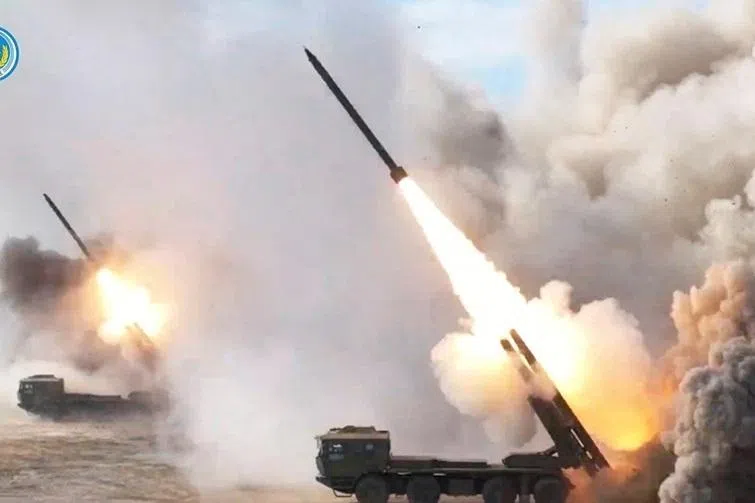[Big read] China's global EV expansion despite trade hurdles from the US and EU
As growth in the sales of new energy vehicles (NEVs) slows in China, a growing number of Chinese carmakers are speeding up their entry into foreign markets. While rising trade protectionism in Europe and North America is affecting their pace of expansion, Chinese carmakers are exploring new markets in South America and Southeast Asia, and localising their production to achieve breakthroughs. Lianhe Zaobao journalist Daryl Lim speaks with industry insiders to find out more.
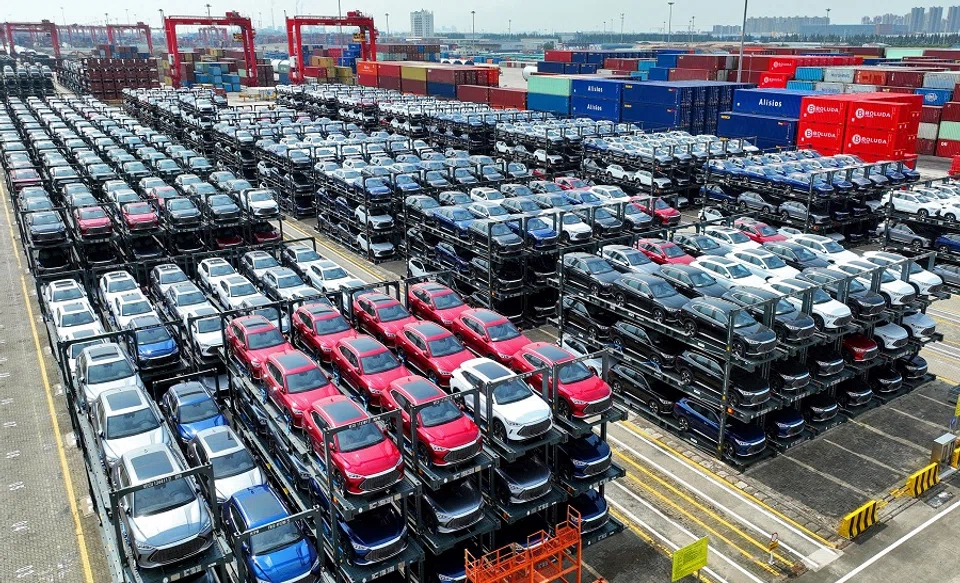
After attending the Belt and Road Summit in Beijing last October, Hungarian Prime Minister Viktor Orban made a stop at electric vehicle (EV) titan BYD in Shenzhen to learn about the latest developments in new energy vehicles (NEVs) and car batteries. Even though both parties did not sign any cooperation agreement then, Orban said that his country welcomes Chinese companies and both sides "expressed strong interest in working together".
Less than three months after Orban's visit, BYD announced in December that it was setting up its first European car manufacturing facility in Hungary, signalling its ambition to expand its market presence in Europe.
Expanding into European market
Other than BYD, other Chinese companies in the EV industry, such as CATL, the largest EV battery maker globally, and Eve Energy, also announced plans in the past year to set up factories in Hungary, which is on friendly terms with China. This prompted some netizens to joke that Chinese EV companies "have either set up plants in Hungary or are on their way there to do so".
... trade between EU members is exempted from value-added taxes and custom duties, so automobiles manufactured by Chinese car companies at their Hungarian factories are exempted from import duties.
Located in the heart of Europe, Hungary is both a transit point and distribution centre for Asian countries entering the European market. Based on European Union (EU) agreements, trade between EU members is exempted from value-added taxes and custom duties, so automobiles manufactured by Chinese car companies at their Hungarian factories are exempted from import duties.
According to data from French consultancy Inovev, Chinese brands accounted for 8% of the new EVs sold in Europe last year, up from 6% in 2022 and 4% in 2021.
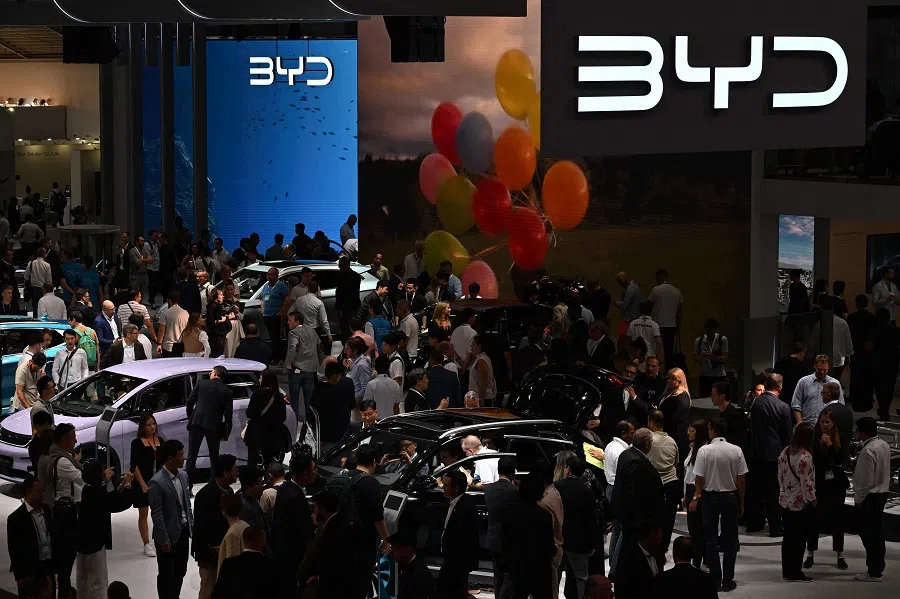
EVs are at the forefront of the challenge posed by Chinese NEVs in Europe. Hence, European automakers are on tenterhooks and rapidly converting their manufacturing plants to increase their production of EVs.
However, China is well ahead in terms of the core supply chains, mass production, and product and technology development of EVs. Thus, it will not be easy for European carmakers to overtake their Chinese counterparts in the short term.
Control measures and investigations on Chinese EVs
To buy more time for their carmakers, the EU has implemented a series of control measures to raise the barriers of entry for Chinese EVs into Europe. Last July, the Council of the EU adopted the new Batteries Regulation that mandates manufacturers to disclose the carbon footprint of their products. Under this new regulation, Chinese makers of EV batteries must declare the carbon footprint of their EV batteries according to the EU's methodology for the calculation.
Wu Dan, an assistant research fellow at the Institute of International Affairs, Qianhai of the Chinese University of Hong Kong, Shenzhen, told Lianhe Zaobao that China currently does not have a standard way of calculating carbon footprint. Hence, the new demands imposed by the EU on imported batteries will affect Chinese EV battery products bound for the European market.
She said, "Developed countries in the West are coming up with new trade and investment rules based on environmental, social and governance (ESG) standards to scrutinise foreign investments more closely and gain 'long-arm jurisdiction powers' at the same time."
The EU has also commenced anti-subsidy investigations on Chinese EVs and China has interpreted this as a political move against it.
Last September, President of the European Commission Ursula von der Leyen criticised the massive subsidies provided by the Chinese government to depress EV prices, allowing cheap Chinese EVs to flood the European market and threaten the local EV industry. The European Commission has started anti-subsidy investigations against Chinese EVs and its findings are expected to be released this year.
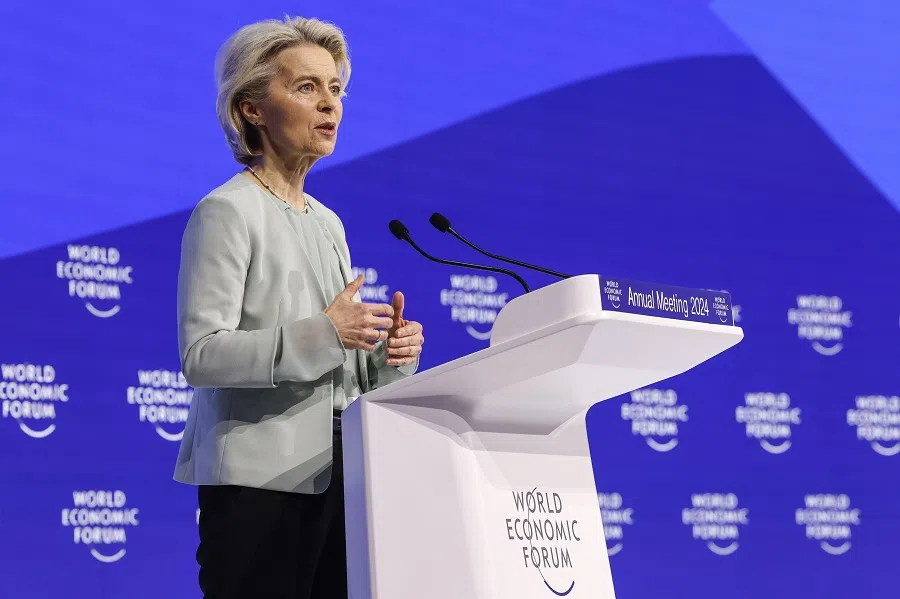
In an interview, Andy Zhou, Deloitte China Automotive sector leader, pointed out that if the anti-subsidy investigation establishes that the Chinese government is subsidising its NEV manufacturers and that this has caused the relevant EU industries to suffer damages, countervailing duties will be imposed on EVs exported from China. This will increase the cost of Chinese EV exports to Europe and diminish their competitive advantage. Zhou said, "Other countries may follow suit and subject Chinese products to similar investigations."
Carmakers prepared to cooperate
According to figures from the China Passenger Car Association (CPCA), Europe is the biggest destination for Chinese NEV exports, accounting for more than 39% of all such exports in the first half of 2023.
With regards to the trade barriers imposed by the EU on Chinese automakers, the companies interviewed have said that they are prepared to cooperate with the authorities and make the necessary adjustments to abide by national regulations.
Brian Luo, assistant general manager of BYD branding and public relations, said in an interview that his company is a staunch supporter of globalisation and firm believer in mutually beneficial cooperation. So, it will work with its international partners to develop products that cater to the needs of the target markets.
Luo said, "We will closely monitor policy changes both at home and overseas to make timely adjustments to our market strategies and operations."
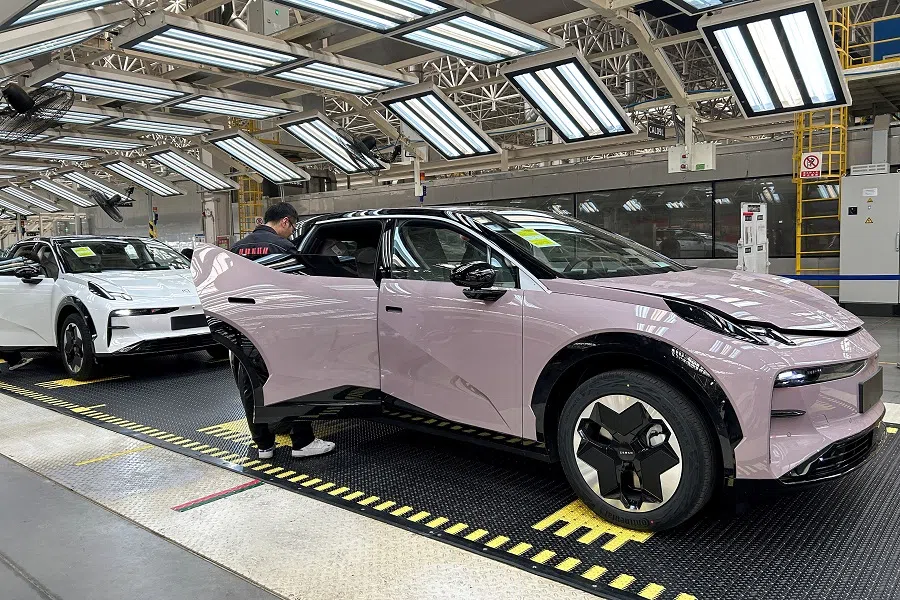
Chinese carmaker, Geely, which is headquartered in Zhejiang, also highlighted that it respects free trade and "follows all laws, regulations and supports fair market competition globally". Geely currently has operations in six European countries and the first delivery of its Zeekr brand EV there was completed in the Netherlands last December.
Chinese EV maker NIO, which has begun car sales in Germany, the Netherlands, Sweden and Denmark, has stated that it will cooperate with the local authorities and provide the relevant information requested. In an interview, Chen Chen, NIO's head of European business development, said, "Our development is unaffected for now."
Currently, at least six Chinese car manufacturers are thinking about building plants in Mexico or engaging in close collaboration with local distributors.
Entering US market poses sterner challenge
Chinese automakers face a sterner challenge to enter the US market compared with Europe.
The Biden administration continued the Trump administration's policy of imposing 25% customs duties on vehicles imported from China. In August 2022, the Inflation Reduction Act was also signed into law to shore up its "Buy American" policy. This excluded EVs, batteries, and other parts and resources produced by Chinese companies from its supply chains.
To expand their market presence in North America, Chinese automakers have accelerated their expansion in Mexico over the last three years, making the country an important bridgehead for Chinese NEVs to push into the continent. Currently, at least six Chinese car manufacturers are thinking about building plants in Mexico or engaging in close collaboration with local distributors.
Analysts pointed out that other than the immense potential of the local market, Chinese car companies chose to invest in Mexico due to the latter's experience and expertise in the automotive industry. At the same time, its geopolitics and free-trade agreement with the US also work in their favour.
The Financial Times reported that Washington has expressed its concerns to Mexico over the wave of Chinese NEV investments. The US government is concerned that Chinese carmakers will be able to sidestep the restrictions imposed by the Inflation Reduction Act by building cars in Mexico, outshining global rivals with technologically advanced models that are more competitively priced.
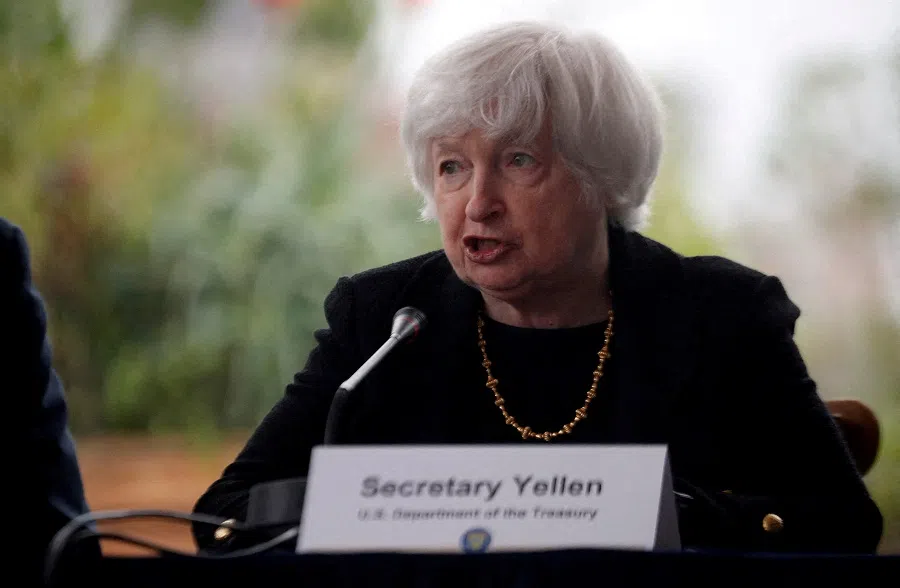
While the US has indicated that it has no intention of stopping China from investing in Mexico, its Secretary of the Treasury Janet Yellen recently urged Mexico "to apply trade rules correctly". In response, the Chinese Ministry of Commerce said that bilateral cooperation between China and Mexico is a matter between two sovereign countries, and third parties have no right to intervene.
Even though Chinese automakers face stern challenges in entering the US market, some experts are optimistic about their prospects due to the huge price advantage enjoyed by Chinese EVs and the shortage of low-cost options in the US market. They feel that it is only a matter of time before Chinese NEVs enter the US automotive market.
Michael Dunne, the CEO of automotive consultancy Dunne Insights, explained that the average cost of a new car is US$48,000 in the US. If a Chinese automaker comes up with a US$20,000 product, even with the 25% customs duties, "they are still in a very advantageous position".
After Europe, Southeast Asia is the second largest market for Chinese NEV companies in their expansion abroad.
Low EV penetration rates make Southeast Asia a blue ocean
The business-friendly environment in Southeast Asia has encouraged Chinese NEV manufacturers to speed up their entry into the region, making it the focal point of their overseas expansion in 2024.
Figures from CPCA show a significant drop in the export of Chinese vehicles to Germany, France, the UK, Spain and Belgium in November 2023. At the same time, exports to countries such as Thailand and the Philippines saw a sharp rise, signalling a shift in the main area of overseas operations from Europe to Southeast Asia for Chinese EVs.
After Europe, Southeast Asia is the second largest market for Chinese NEV companies in their expansion abroad. According to a report released last September by market research firm Counterpoint, sales for the EV segment alone in the second quarter of 2023 increased greatly by 894% in Southeast Asia.
Even though EVs only accounted for 6% of all new vehicles sold in Southeast Asia that quarter, it was still twice that of the previous quarter. At the start of 2022, the share was only 0.3%.

Deloitte China's Zhou told Lianhe Zaobao that Chinese NEV makers are actively expanding in Southeast Asia because of the region's huge potential appetite for automobiles and room for growth in its NEV market. Zhou said, "Unlike China, Europe and the US, the penetration rate of NEVs in Southeast Asia is lower, making it a blue ocean. After two years of government policy stimuli, there has been a significant breakthrough in local NEV sales."
Nickel is a key component of lithium-ion batteries, which are in turn at the heart of EVs... Hence, major automakers are looking to invest in Indonesia, which has the largest nickel reserves in the world.
Accelerating investment in production lines
The Counterpoint report concluded that Chinese automakers are set to become the biggest beneficiary of Southeast Asia's appetite for EVs over the short term, and Thailand will be a hot spot as this new breed of automakers sets up shop in the country.
As the largest producer of automobiles in the region, Thailand boasts a comprehensive automotive industry, a huge domestic market, and access to sizeable markets abroad. In recent years, Chinese NEV makers have accelerated the setting up of production lines in Thailand to satisfy the surge in regional demand.
Nickel is a key component of lithium-ion batteries, which are in turn at the heart of EVs. As the NEV industry prospers, the importance of nickel grows. Hence, major automakers are looking to invest in Indonesia, which has the largest nickel reserves in the world.
In a report by the Indonesian news agency Antara, the Indonesian government said that four Chinese EV manufacturers, including Wuling Motors and BYD, have expressed an interest in investing in the country as of the end of December 2023.
In July 2023, Malaysia Prime Minister Anwar Ibrahim revealed that Geely has plans to invest US$10 billion to build the country's biggest automotive hub in Tanjung Malim, Perak.
Geely told Lianhe Zaobao that Malaysia is a strategic choice for the company and its bridgehead into Southeast Asia. It added, "Geely will proactively embrace the new opportunities presented by economic growth in the region and increase its investment in ASEAN."
Deloitte China's Zhou highlighted that both consumers and governments in Southeast Asia are more receptive to Chinese capital and brands, making it easier for Chinese automakers to enter markets in the region. This will somewhat offset the dip in their European sales.
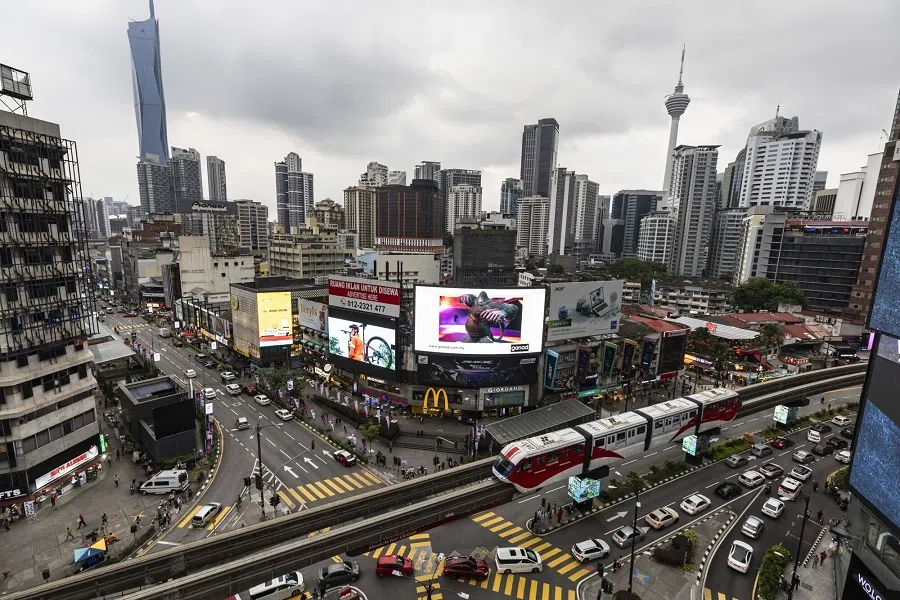
However, Zhou also emphasised that Japanese automakers have been operating in Southeast Asia for a long time and have the advantage of leading in the fuel vehicle sector. As Chinese EVs become more common in the region, the local EV industry chain will become more sophisticated. In time to come, a growing number of Japanese and South Korean car companies will also bring their EV models to the region, intensifying competition in the Southeast Asian EV market.
Need for localised solutions to become market leaders
While Chinese EVs have had a good start in the global market, obstacles such as poor brand awareness and intense competition remain in some markets. Experts believe that Chinese carmakers need to enhance their cooperation with these countries to provide localised solutions in order to become market leaders.
For instance, even though Europe is one of the earliest adopters of EVs in the world, factors such as high prices, inadequate charging facilities and a lack of confidence mean that EV penetration rates remain low, especially in the lower-income central and eastern European countries.
NIO's Chen told Lianhe Zaobao that Europe is the birthplace of the automobile industry. As a new entrant to the market, it is unavoidable that NIO faces competition from established brands. He added, "Having been around for many years, these brands have built up brand loyalty among their users; it is more difficult for new brands with low brand awareness to break into the market."
Chinese automaker Geely feels that overseas markets are generally filled with more uncertainty and variables. At the same time, Chinese car companies face more unfair market competition and biases than their European, Japanese and South Korean counterparts. Examples of these include high tariffs and the exclusion of the automotive industry from regional free-trade agreements. In the face of these challenges, Geely remains determined to stay compliant while improving local operations, strengthening its marketing, and raising its brand influence.
... Chinese car companies need to hasten their switch from relying solely on trade to green-field investment. This would entail acquiring existing local production capacities, working even more closely with original equipment manufacturers (OEMs), setting up assembly plants, and so on. - Andy Zhou, Sector Leader, Deloitte China Automotive
From trade to green-field investment
In an interview, BYD's Luo shared that the challenges BYD faces overseas include market conditions, consumption habits and cultural differences. Luo said that BYD will respect foreign market rules and strive to work even more closely with its local partners to develop specific market and product strategies.
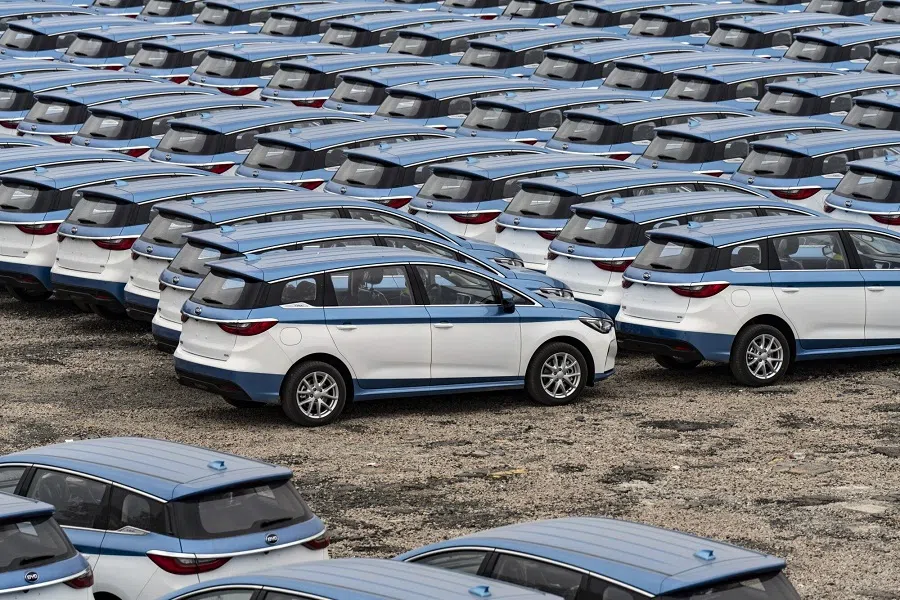
Chen from NIO also feels that quality products and technology will allow the company to enter new markets. NIO will establish a comprehensive business and service system through brand differentiation, and build a localised operating ecosystem through open integration.
Deloitte China's Zhou concluded that as Chinese automakers enter the next phase of their overseas expansion, core transformations to their products and production models are necessary. He said that Chinese car makers cannot stay content with replicating domestic products overseas or only making adaptive adjustments. He added, "In the long term, they need to customise their product development according to consumer needs and the operating environment."
At the manufacturing and supply chain levels, Zhou feels that Chinese car companies need to hasten their switch from relying solely on trade to green-field investment. This would entail acquiring existing local production capacities, working even more closely with original equipment manufacturers (OEMs), setting up assembly plants, and so on. He said that doing so would help these Chinese companies raise their localised production levels in overseas markets.
For many years, Chinese automakers have primarily relied on OEMs for production and local distributors for sales and after-sales services in overseas markets. Zhou said that the next step for them is to go into direct sales while continuing to work with its dealers as doing so would give them greater autonomy over brand-building, sales processes, service standards and more.
This article was first published in Lianhe Zaobao as "欧美进军路跌宕 中国电动车加速开往东南亚".



![[Big read] When the Arctic opens, what happens to Singapore?](https://cassette.sphdigital.com.sg/image/thinkchina/da65edebca34645c711c55e83e9877109b3c53847ebb1305573974651df1d13a)
